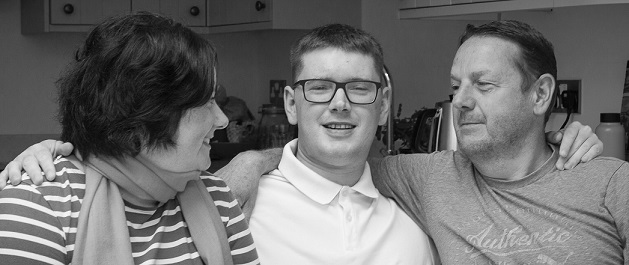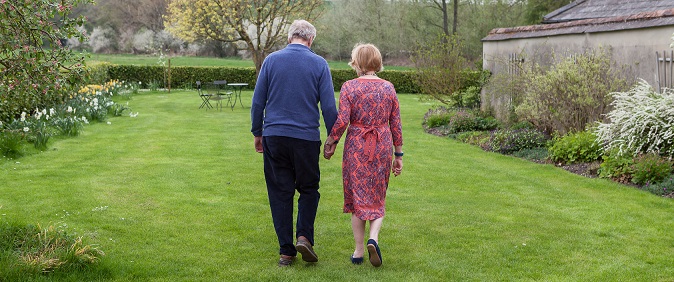Family Matters - Recognising the complex needs of families living with brain injury

Having and belonging to a family is something we all share, the word itself will conjure up a vast array of emotions. The meaning of family, the ‘form and shape’ of our families and the experience of being part of our own family unit is unique to each of us.
If you take time to reflect on how you spend your time, no doubt your family is central to the activities you complete each day, which feeds into your daily and weekly routine as well as your roles and responsibilities. I am sure you have memories of time spent with family members, happy times and sad times including ‘high days and holidays’ and key life events. For most of us our family provides a foundation of support; they are the compass that guides us throughout the stages of our life, they nurture and inspire us to grow as individuals whilst providing roots to anchor us in a storm. The pivotal importance and the influence of families can therefore not be underestimated.
Brain injury and the consequences
Brain injury is a catastrophic event that has a significant impact on an individual and their family. The consequences of a brain injury are broad and wide reaching, often affecting many in the immediate and extended family network. Brain injury survivors require significant emotional, physical and practical support. This is often given by a parent or spouse and in some cases, an individual’s offspring.
Here, Denise talks about the moment she was told that her son, Chris had had a life changing accident:
The emotional support provided by family members to relatives affected by brain injury is, in many families I have met, unconditional. It does, however, come with a price. Many will find themselves wrestling with overwhelming feelings of grief, loss or guilt. They will find their home overwhelmed with professionals and possibly support staff who were never invited or welcome. The consequence is a response that is a complex mixture of emotions and behaviours that can be damaging to the psychological wellbeing of the individual and possibly obtrusive or challenging to the rehabilitation process.
“In 2015 I was knocked off my bicycle by a car and suffered a head injury. I could never have imagined the consequences of this and the impact that it would go on to have on my own and my family's lives.” Brain Injury Survivor
Family focused rehabilitation following brain injury
Whilst the primary focus of neurorehabilitation is the individual themselves, professionals must ensure that we are sensitive to the needs of family members and their own unique response to grief and trauma. What we know is that relationships within families are entangled, sometimes messy and complicated and were likely that way long before the brain injury arrived.

A ‘whole family’ approach must be adopted considering the home environment, family culture and belief systems, as well as the existing and previous roles of family members to name a few. It is also worth acknowledging that whilst in the main, families can have a positive influence on their loved one’s rehabilitation journey, at times these unique responses to grief and loss can present a complex challenge.
“I spent the first few months in bed and was not able to take part in family life or work. I missed out on important events in my family's lives, such as my youngest son scoring his first goal for his Sunday league football team, my eldest son winning a tennis tournament and being able to do something special for my wife on our 11th wedding anniversary (it was my year to make the plans); these are not things that you can get back.” Brain Injury Survivor
Fears for a loved one and managing responses of others
Throughout my career I have met a broad range of diverse families, all from different backgrounds and cultures. All these remarkable families live within an expansive range of home environments. Each family in their own way, are doing their best to live with, and come through, often immense trauma. Family members find themselves living within the complexities of brain injury often with no prior experience. The response of others in the community and from the wider network of friends can often compound daily challenges due to the barriers they create. In this short clip, Penny talks about the lack of understanding and compassion from their wider network of acquaintances and friends following her husband George’s brain injury.
Living day to day with brain injury and coping with the type of response Penny describes, results in a complex muddle of relationship challenges, behaviours and emotions, that for better or worse is the starting point of neuro rehabilitation.
As neuro OTs, and other professionals working in this complex field, we must work hard to create a therapeutic relationship where families can feel ‘listened to’ and ‘safe’ to express their inner thoughts and feelings. Acknowledging and recognising these needs and the barriers that may hinder an individual’s performance and participation in activities is an essential part of the Neuro OTs role. These insights will help to guide and inform our clinical reasoning.
“I am clear that facilitating healthy and supported family networks are a central component to successful neuro rehabilitation. As professionals it is our responsibility to acknowledge these needs, nurture individuals to promote resilience and offer meaningful intervention to help families acknowledge, adapt and grow.” Jo Throp, Clinical Director

Our aim should be to work in partnership with families to better understand their needs. We should assist with the ‘storming and re-forming’ of roles to facilitate positive relationships, regain hope and find a new direction.

